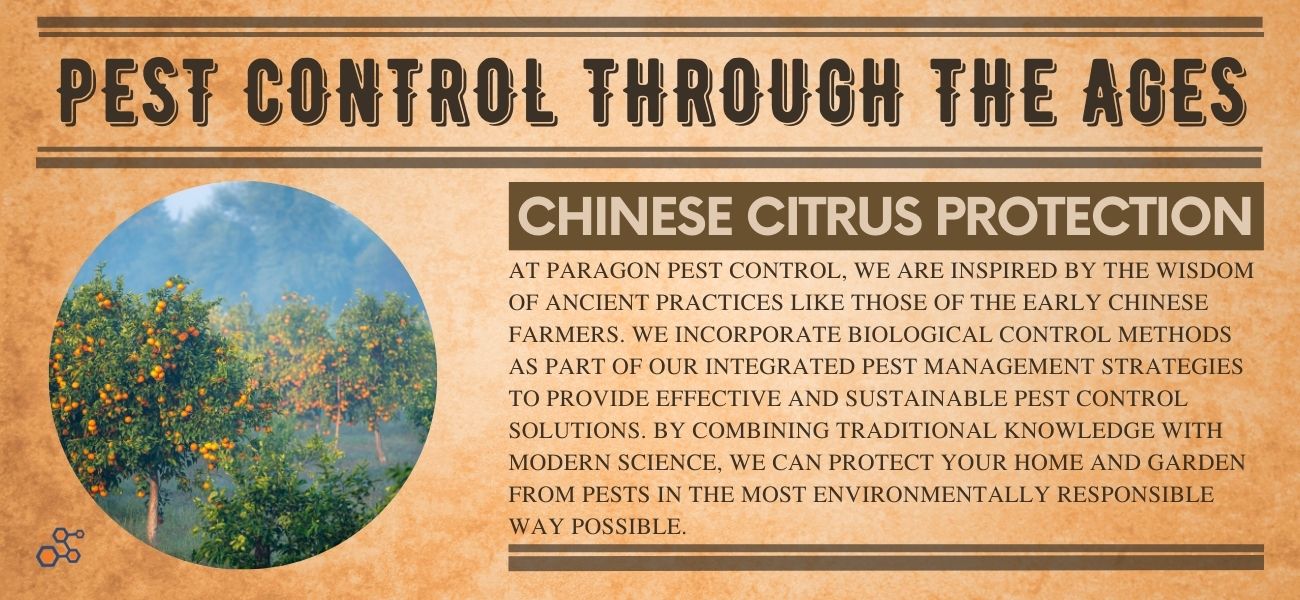Pest Control Through the Ages: Chinese Citrus Protection
The history of pest control is rich with innovative and fascinating methods, one of the most intriguing being the ancient Chinese use of ants to protect citrus trees. This practice, known as biological control, harnessed the power of natural predators to manage pest populations, long before the advent of chemical pesticides. Today, we explore how early Chinese farmers implemented this technique and how these principles are still applied in modern pest management.
Early Chinese Pest Control Methods
In ancient China, citrus trees were highly valued for their fruit and medicinal properties. However, these trees were vulnerable to various pests, such as caterpillars and beetles, which threatened their health and productivity. To combat these pests, Chinese farmers turned to a natural solution: ants.
The Role of Ants
The Chinese citrus farmers introduced colonies of Oecophylla smaragdina, commonly known as weaver ants, to their orchards. These ants are fierce predators of many citrus pests. The farmers discovered that by encouraging the presence of weaver ants in their orchards, they could significantly reduce the number of harmful insects on their citrus trees.
The ants would build nests in the trees and patrol the branches, hunting for any pests that dared to feed on the leaves or fruit. This method proved highly effective and sustainable, allowing the farmers to protect their crops without the need for synthetic chemicals.
Modern Applications of Biological Control
The principles behind the ancient Chinese method of using ants for pest control are still relevant today. Biological control, which involves the use of natural predators, parasites, or pathogens to manage pest populations, is a cornerstone of modern integrated pest management (IPM) strategies.
Benefits of Biological Control
Eco-Friendly: Unlike chemical pesticides, biological control agents are environmentally friendly and pose little to no risk to humans, animals, or beneficial insects.
Sustainable: By relying on natural predation, biological control can provide long-term pest management solutions.
Reduced Resistance: Pests are less likely to develop resistance to biological control agents compared to chemical treatments.
Examples in Modern Agriculture
Predatory Insects: Farmers use ladybugs, lacewings, and predatory beetles to control aphids and other soft-bodied pests.
Parasitic Wasps: These tiny wasps are used to target caterpillars and other insect larvae.
Nematodes: Beneficial nematodes are microscopic worms that can target and eliminate soil-dwelling pests.
Paragon Pest Control's Approach
At Paragon Pest Control, we are inspired by the wisdom of ancient practices like those of the early Chinese farmers. We incorporate biological control methods as part of our integrated pest management strategies to provide effective and sustainable pest control solutions. By combining traditional knowledge with modern science, we can protect your home and garden from pests in the most environmentally responsible way possible.
For more information on our pest control services or to schedule a consultation, visit our website at paragonpestdfw.com. Let us help you keep your home comfortable and pest-free with our expert solutions.


